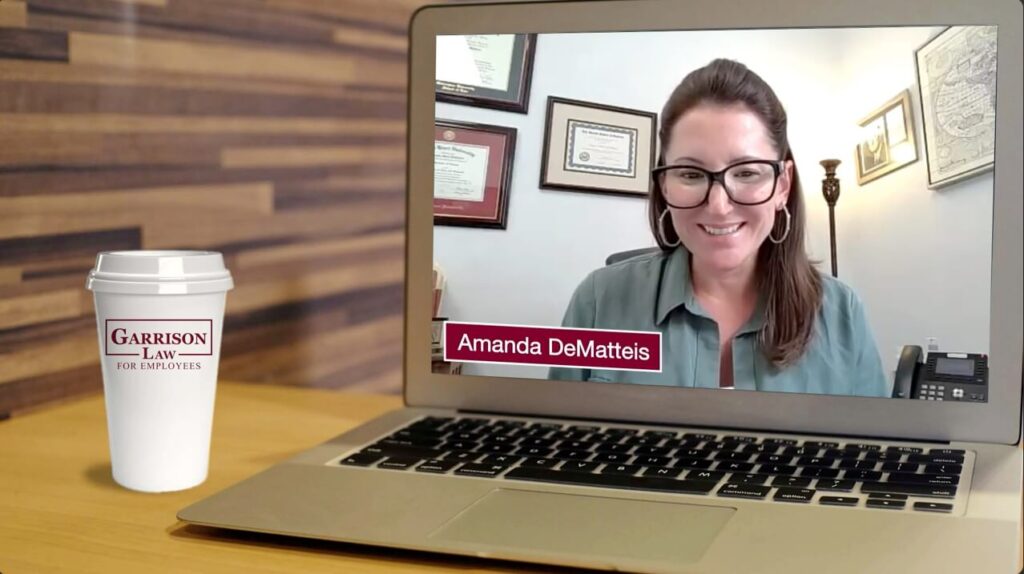Oct 25 2023
Josh Goodbaum: Hi, Amanda.
Amanda DeMatteis: Hi, Josh. What are we gonna talk about today?
Goodbaum: I want to talk about the Family and Medical Leave Act — the FMLA — which is such an important resource for American workers and for Connecticut workers. But I think there’s some misunderstanding among some of the folks I talk to about the FMLA, and I want to try to clear that up.
People say to me, “I was sick but I could still work. So I didn’t think I could take FMLA leave. To take FMLA leave, I need to be unable to work, right?” Is that right, Amanda? And what do employees need to know about when they’re allowed to take FMLA leave from work?
DeMatteis: No, that’s wrong. You do not need to say to your employer, “Hey, I am unable to work,” in order to be eligible for FMLA leave. Instead, to take FMLA leave, you just need to be suffering from a serious health condition or an immediate family member needs to be suffering from a serious health condition.
So maybe you have asthma, maybe a family member is going through cancer, maybe you are dealing with anxiety or mental health issues and you just really need to hit the pause button, take a bit of a break from work and focus on yourself. That’s why the FMLA is there.
Now, you can take FMLA leave in a couple of different ways. You can take it on a continuous basis for up to 12 weeks, or you can take it on an intermittent basis. Maybe you had a knee replacement and you need to go to physical therapy a couple of days a week. You can just take a day or a portion of that day to utilize some FMLA leave on an intermittent basis. Maybe you need to really hit that pause button and stay away from work for a while. You can take two or three or four weeks off.
Of course, you have to go to a medical provider that’s treating you for whatever serious health condition that is allowing you to get out of work. They’ll be required to fill out a medical certification that says to your employer, “Hey, this patient is under my care. This patient suffers from X condition and this patient would really do well with X amount of time off, either on a continuous or an intermittent basis.”
So, remember that this tool is available for you if you need it. There is no requirement under the FMLA that says you cannot have a work capacity, you must not have a work capacity, in order to utilize FMLA.
One other point while we’re talking about disabilities or serious health conditions: Remember that we have the Americans With Disabilities Act as our federal law. We also have the Connecticut Fair Employment Practices Act, which has a disability component to it. If you have a disability, your employer must provide you with the reasonable accommodation to assist you.
So, there are protections there as well that you may need during this particular time when you need to hit the pause button and take a little bit of a break from work.
Goodbaum: Such important information. The FMLA is such an important resource for employees, Amanda. And I’m so glad that you clarified the eligibility criteria for folks who are thinking that they might benefit from some time away from work. Thank you all for watching, and we’ll see you next time.
Posted by Garrison, Levin-Epstein, Fitzgerald & Pirrotti, P.C. in Commentary
Tagged Amanda DeMatteis, FMLA, Joshua Goodbaum








